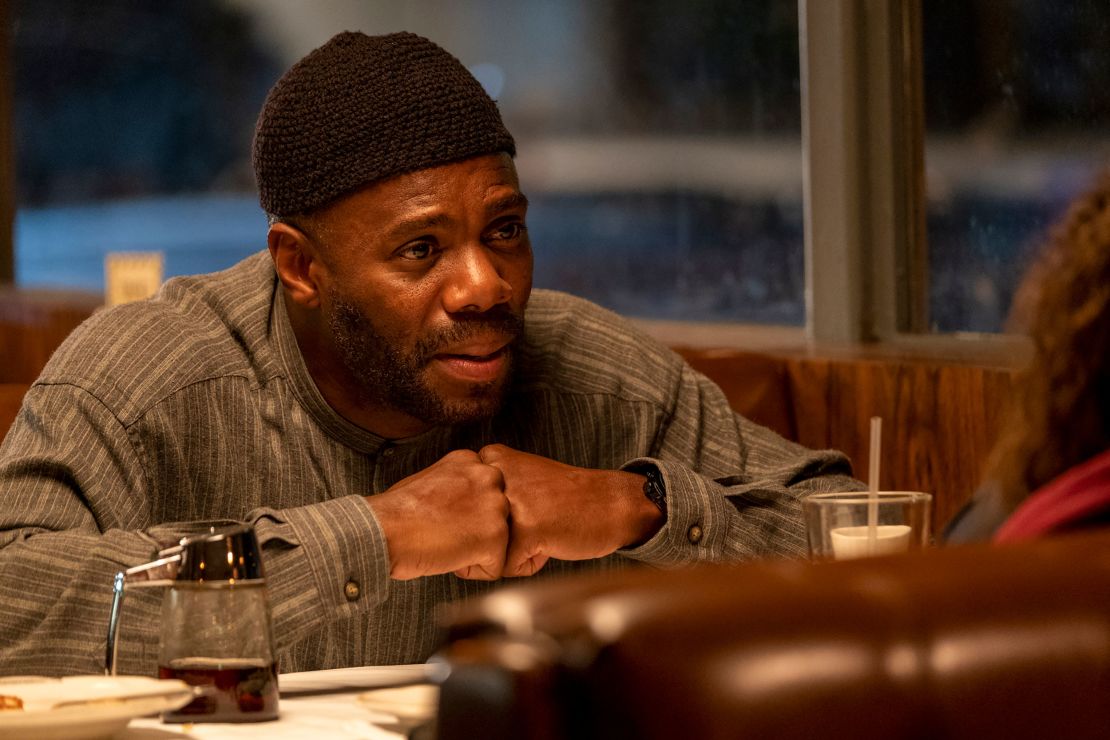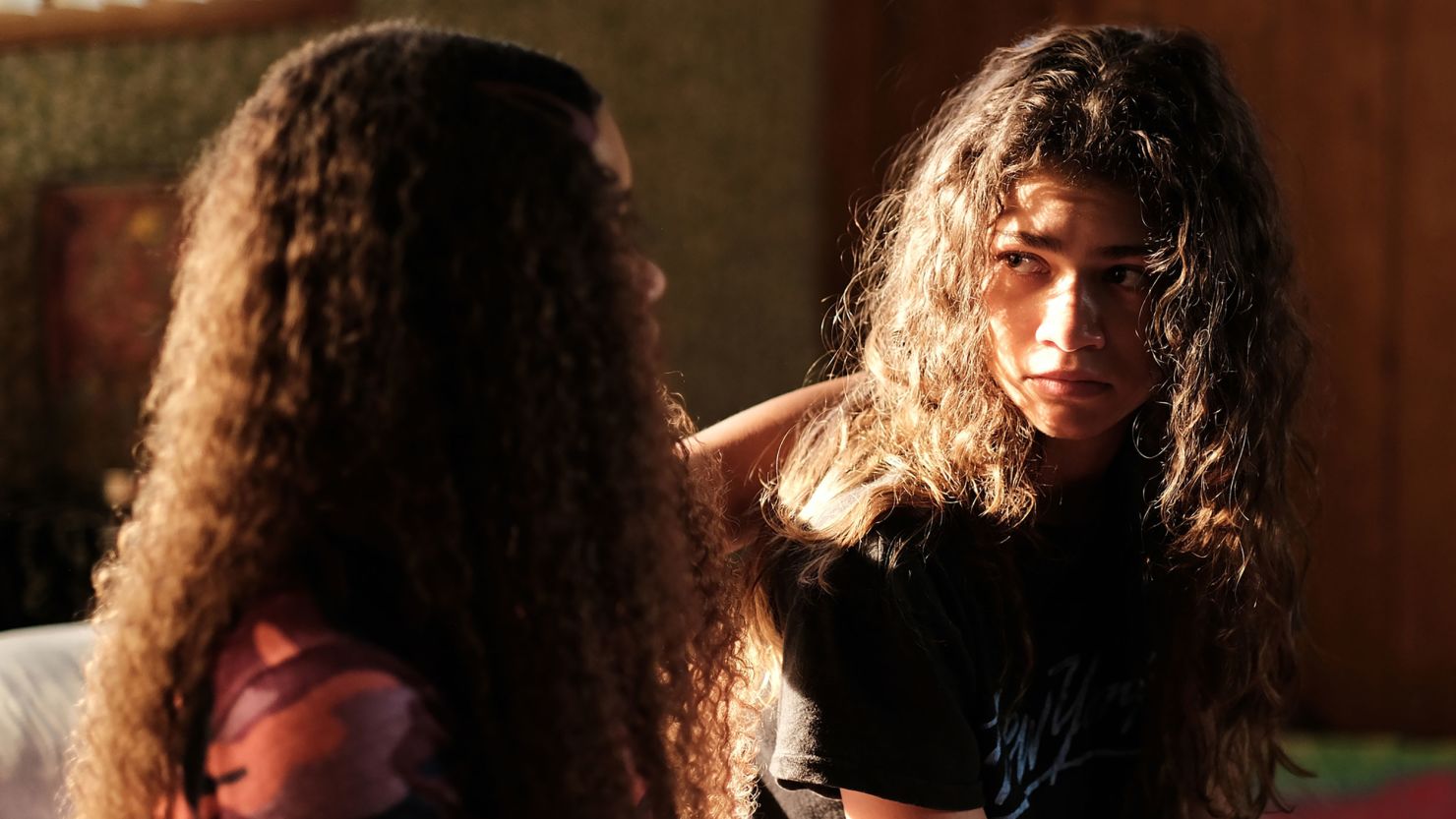Editor’s Note: Denayja Reese is a Los Angeles-based writer, producer, project manager and strategist. She is the author of “Don’t Hurt Yourself: A Memoir Of Healing Through Grief, Trauma and Addiction” and creator of the book’s companion visual memoir. The views expressed here are her own. Read more opinion on CNN.
Note: This op-ed contains mild spoilers for HBO’s “Euphoria.” HBO and CNN share a parent company.
While “Euphoria” is full of talent, in front of and behind the camera, at its core the show is the story of the grief, drug addiction and depression of Rue Bennett, portrayed exhilaratingly by lead actress Zendaya.

In Season Two, which recently concluded, we’ve seen a deeper examination of Rue’s descent into drug use – a response to grief over the tragic death of her father. In the season’s first episode, she takes various drugs and nearly goes into cardiac arrest in the laundry room at a New Year’s Eve party, while in episode 5, she engages in a wide variety of violent and destructive behavior toward everyone around her before ending up in a dangerous situation with a drug dealer to whom she owes a large sum of money.
While we as a collective audience have been watching Rue’s story of loss and struggle, I feel like I’ve been watching a version of my own. My mother passed away from a sudden heart attack in September 2008.
I was not prepared to lose my mother at 18 years old. I did not have the coping skills to properly work through that kind of grief, so I used drugs. Drugs were an omnipresent part of my life from 2009 to 2014. Still, even with all of this happening to me, I remained a high-functioning ambitious person and I looked like the strong Black woman that people expected me to be. On the inside, I was suffering from grief, depression and anxiety.
The events in Rue’s life shown in “Euphoria” are extreme, and as Season Two aired, a conversation emerged among the show’s critics questioning whether Rue’s story is an accurate – or responsible – depiction of the experiences of a young Black woman battling addiction. Those debates miss a critical point: The intensity of Rue’s character and the excesses of her behavior are an important breakthrough in how young Black women like me are represented on screen and for mass audiences.
I can say from firsthand experience that Rue’s story is an authentic portrayal – my own issues with addiction manifested themselves in similarly extreme ways. I once jumped off a 30-foot cliff while high. I felt the same relenting self-loathing that Rue expresses in the show. I, like Rue, was using drugs as a sort of time-release suicide plan.
I think the discrepancy that some see between the show and real life is not in the accuracy of the depiction. The problem is that most people do not know what a young Black woman experiencing addiction looks like because we are not used to seeing Black women publicly battling anything.
Black women often hide our pain from everyone because we are not likely to receive compassion when we show vulnerability. More often than not, Black women expressing vulnerability or seeking support are met with disbelief, an extreme lack of empathy and, in some cases, outright vitriol.
In a scene from the special episode that aired between Seasons One and Two, in which Rue and her sponsor Ali (portrayed by Colman Domingo) are having pancakes on Christmas Day, Ali talks to Rue about addiction.

He says, “The hardest part of having the disease of addiction, aside from having the disease, is that no one in the world sees it as a disease. They see you as selfish. They see you as weak.”
There has never been a time in the world where Black women have been given the space to be seen as either selfish or weak. When I started on the path toward healing my issues with addiction, I did the majority of that work alone. I am only now feeling safe and brave enough to publicly discuss what I was going through during that time.
When my mother died, everyone expected me to be “strong” and carry on – so I did. I had learned long ago how to do that from my mother.
I found out after her death that the night she died, before she finally said that she could not breathe and collapsed at my feet, she had been having a heart attack for three hours. She was on the phone with my aunt planning an event for my cousin while she was dying.
When the autopsy on her body came back, it was revealed that her heart had been failing her for months. That she was walking around in tremendous pain, and had been for years, but said nothing.
On the surface, my mother’s death reflects a widespread brokenness in our system of health care; according to the American Heart Association, cardiovascular diseases kill nearly 50,000 Black women annually and nearly half of Black women older than 20 have heart disease – yet only one in five Black women believes she is personally at risk.
At a deeper level, however, what happened to my mother illustrates one of the heaviest burdens Black women carry. Even when faced with the most horrific circumstances, even when in pain, so many of us remain stoic – usually for the benefit of others and to the detriment of ourselves.
This is why – despite objections by those who claim “Euphoria” glorifies drug use or deploys extreme or sexualized narrative tactics to exploit the audience’s emotions – I view Zendaya’s Rue Bennett as a transformative figure. Rue’s character and her extremes are extraordinary precisely because we are not used to seeing out of control Black women and girls. I don’t think most audiences know what an unhinged Black girl looks like. We are supposed to be strong. We are supposed to move forward through all of our trauma, grief and tragedy. We are not given space to break down. We are not supposed to require rehabilitation.
It is OK that Rue’s story does not perfectly reflect my own experience or the experiences of other Black women who have dealt with addiction. It is OK if not all Black women see themselves in Rue, and if critics take issue with her character.
Still, I do see myself in her. That’s why I hope this season of “Euphoria” and Rue’s story more broadly give viewers a deeper empathy for Black women who have gone through intense, traumatic experiences. As a Black woman in recovery from addiction, I take comfort in artistic work like “Euphoria” that honors our humanity in a world that most of the time insists we be strong in the face of all turmoil.
If you or someone you know is struggling with addiction, there are resources and hotlines available to help.
If you are experiencing a suicidal crisis, you can call the National Suicide Prevention Lifeline at 800-273-8255 or text the Crisis Text line by texting HOME to 741741 to get help.




